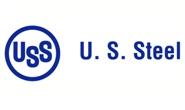Government/Policy

March 20, 2018
U.S Steel Section 337 Investigation Closed
Written by Sandy Williams
The final complaint in the U.S. Steel Section 337 investigation against steel manufacturers in China was dismissed by the International Trade Commission on Monday. In a 3-1 decision, the USITC said U.S. Steel failed to show specific antitrust injury.
The antitrust claim was the last of three complaints that U.S. Steel brought against its Chinese competitors. The company alleged that eight Chinese steel manufacturers violated section 1 of the Sherman Act by agreeing to fix prices and control production. The antitrust claim was terminated by Administrative Law Judge Dee Lord in November, but sent back to court after U.S. Steel appealed.
U.S. Steel withdrew its trade secrets complaint in February 2017 and the false designation of origin investigation was terminated in October.
“From the outset of the Section 337 case, our company sought to challenge the brazen violation of our trade laws by foreign competitors,” U.S. Steel said in a March 19 statement to Inside U.S. Trade. “We have learned how insurmountable that obstacle is for a single company to overcome.”
The 337 investigation originally targeted 40 respondents that are Chinese steel manufacturers or distributors. Eighteen of the respondents participated in the investigation and the rest were found to be in default, including 15 respondents in the false designation of origin claim.
The Commission is authorized to order relief against the Defaulting Respondents which may include: “(1) issue an order that could result in the exclusion of articles manufactured or imported by the Defaulting Respondents; and/or (2) issue cease and desist orders that could result in the Defaulting Respondents being required to cease and desist from engaging in unfair acts in the importation and sale of such articles. Accordingly, the Commission is interested in receiving written submissions that address the form of remedy, if any, that should be ordered.”
The Section 337 investigation, however, is essentially closed.







